ScuzzBlog: Diaries March 2021
Entry 13th March 2021: Post 1: Calculators - The birth of computing.
Calculators - The birth of computing.
The path to the computer for me started in my first year of the
secondary school. It was here that I was first introduced to the
LOG table ... or logarithmic tables. For years this was the tool
used to carry out complex maths calculations and trigonometry. By
the time we got to 3rd year we were all given a brand new very
thick maths book and instructed to go home and advise our parents
that they needed to buy a slide rule. The slide rule became the
first symbol of wealthy upbringing. Mine was the very basic and
cheapest and others had expensive double sided types.
I always recall the chuckles in the exam hall in 1972 when on the
cover of the paper there was a statement that said that calculators
were permitted as long as they were not connected into the wall.
Not a single person in that hall had a calculator.
Time in my first office was mostly spent with slide rules though
there were one or two largish calculators stationed at strategic
locations for checking. There were over forty technical staff in
my office alone and all used slide rules. Big slide rules and these
for calculating live and dead loads on multi storey buildings to
determine bending diagrams for structural steel and concrete.
Only when I moved to estimating were calculators more common and
this to work out costs and volumes of material. All the additions
to specific projects were undertaken by an office full of ladies
that used comptometers.
In 1976 I purchased my first calculator the Commodore 9R-25 using
a MOS MPS 7545. She is pictured first. By this time most owned
a calculator and would use only the electronic devices to do any
calculations, no matter how minor. It really was expected that
everyone owned a calculator.
In 1976 I was introduced to my first computer, or terminal. It
was during an ONC maths class and the terminal connected by a
telephone to a main frame in Birmingham and printed its results
on punch tape.
1978 and I was at School of Architecture in Birmingham and I can
say that in the five years I was there I never used a computer.
In the whole department there was one computer used in the main
library for data base for books and that was all. All calculations
were on calculator though most had scientific calculators by now.
In 1981/82 I worked during my year out for a large architectural
practice in Birmingham and again no computers. However it was at
this time that I saw the VIC-20 in Dixons window and decided to
save all my pennies and buy one. A little later I saw a ZX81 in a
glass case in Smiths in Walsall and the price at £49 was easily
in my grasp. So I bought my first computer and the rest is, as
you say, history.
I know that some think that the evolution to computer was sudden
leap of faith by the like of Apple, Atari, Commodore, Sinclair etc
but it wasn't. Everyone that used a computer for the first time
would have most likely gotten to that point via logs, slide rule
and then calculators. Commodore were selling typewriters, adding
machines and calculators long before they ventured into computers.
It is well known the war that existed between Commodore and Texas
Instruments, both giants of the calculator world, started long
before computers arrived. It was Jack Tramiel that put an end to
Texas' venture into the computer world when he undercut software
and made their product non profitable. These two companies
would have seen their first primary market as calculators with
only a passing interest at first in computers.
By close of play of the calculator world companies like CASIO
were producing programmable calculators which not only had the
display screen and printer built in, but also memory cards for
saving information. All the components usually associated with
the computer. The books were developed in BASIC and gave sample
programs to use. In 1980 Tandy even called their TRS-80 handheld
calculator a pocket computer.
For me when I purchased the ZX81 I believed that I had acquired
a very powerful calculator. I know many think that the very first
thing you type is "hello world", well for me it was very long
and very complex calculations. The magic was seeing the ZX81 eat
massive calculations in a blink of an eye. And then best of all
remember aspects of the program, list out as variables and
carry them over to execute other calculations listed in programs.
And so the ZX81 for me represented a watershed of technological
possibilities. It was the end of everything that had gone before.
It literally threw the logs, slide rules and calculators into the
trash. Nothing had made such an impact on my life with such a
lasting powerful usage in all the years I had been using numbers.
Maths is the key to everything for me. Having an understanding
of the way numbers work is so significant in almost everything I
have ever worked with. And so the advent of the computer was a
transition that was irreversible and made life so much better. I
doubt many that use a computer today even give a seconds thought
to the wondrous gadget they have in their possession. To fully
appreciate that you first need to have lived when long hand
calculations were not just a teaching aid but a necessity as
there was nothing else. At a time when making a mistake could
cost you your job. Today the calculator is taken for granted in
all mobile devices, computers and tablets and yet time was we
had to achieve the same by way more complex and risky routes.
I have kept my old calculators plus added a few more of interest.
Collecting calculators would have been a real challenge as there
were just so many. I decided a long time ago not to bother. And
so today I show just a sprinkling....
When calculators were king
Commodore 9R-25 using a MOS MPS 7545 my original: 1976
Commodore 796M: 1975
Commodore Sr-1800: 1976
Texas Instruments TI-1030: 1980
Texas Instruments TI-34: 1987
Texas Instruments TI-Programmer: 1977
Texas Instruments TI-45: 1978
Casio HL-807: 1980
Casio fx82-c: 1988
Casio FX-720P: 1982
Casio FX-802P: 1983
TRS80 Pocket Computer: 1980
Calculators - The birth of computing.
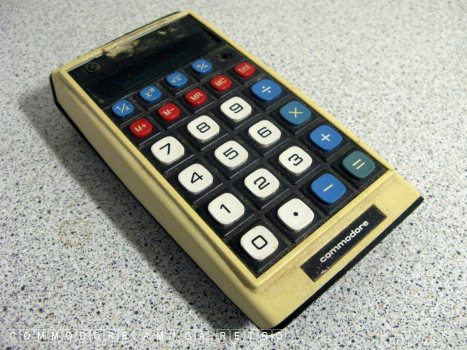
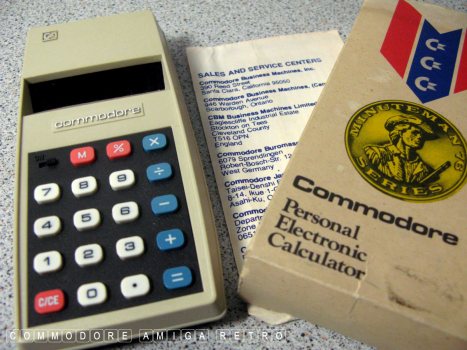
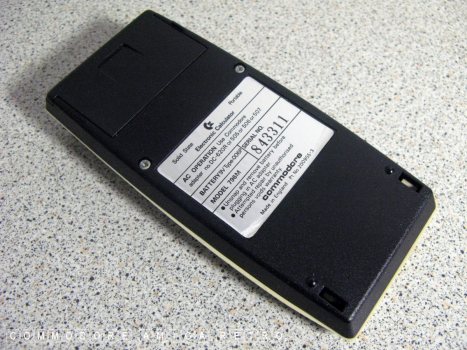
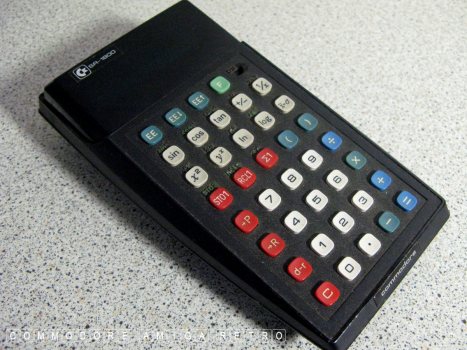
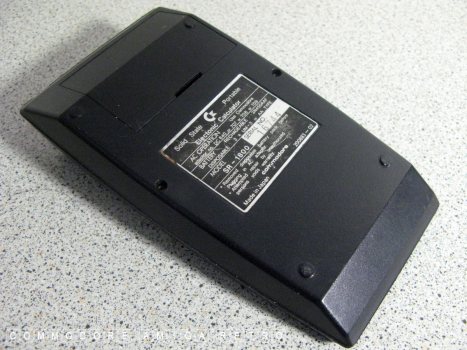
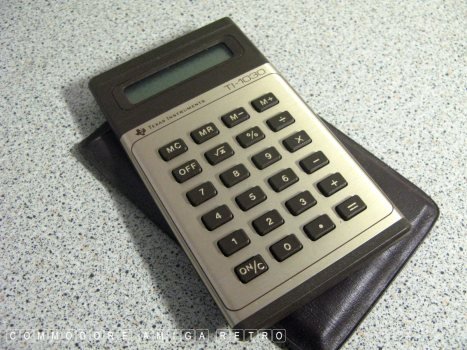
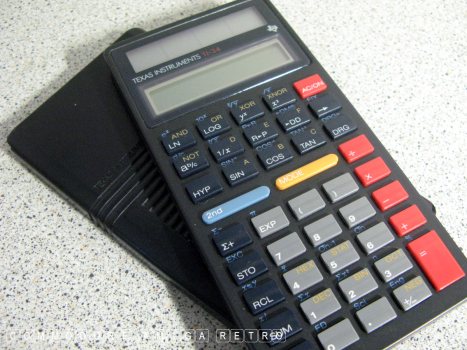
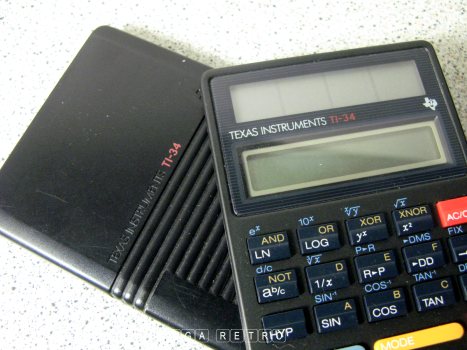
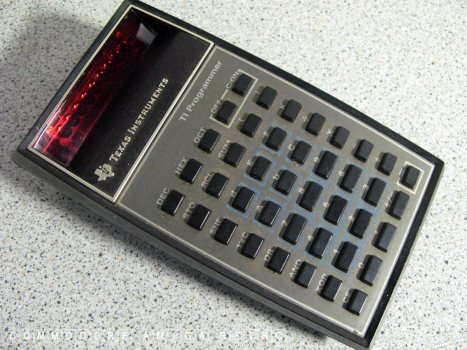
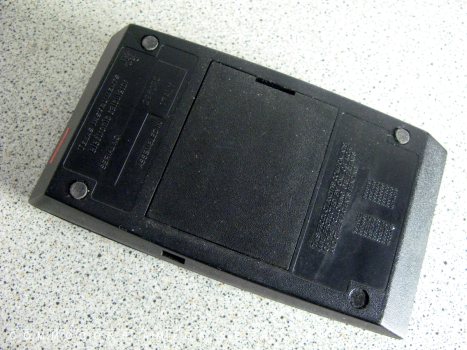
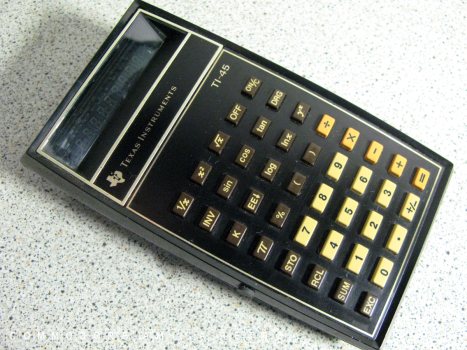
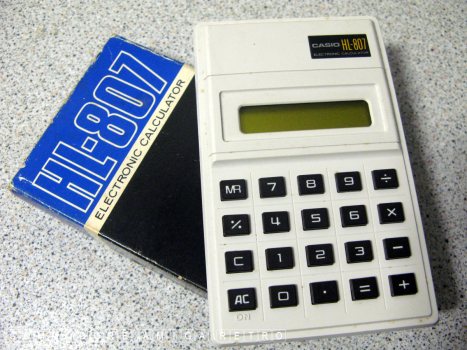
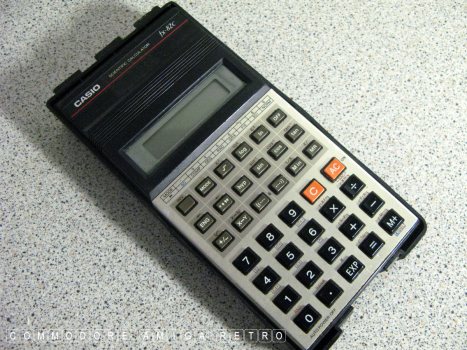
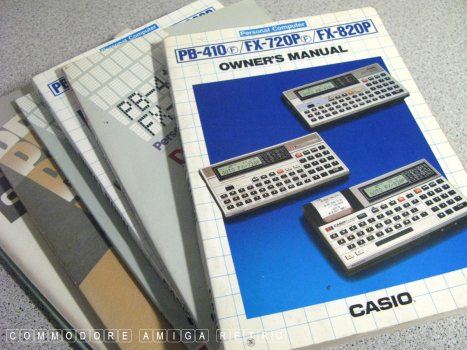
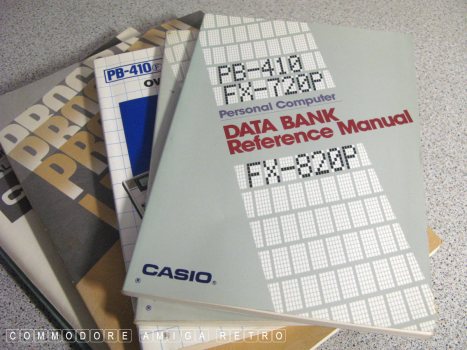
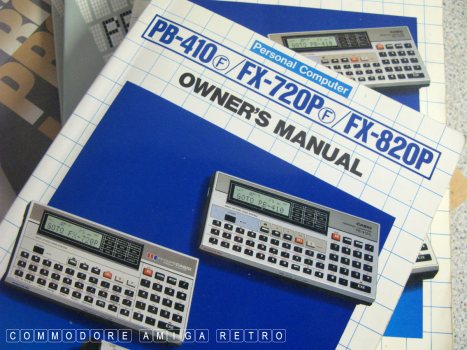
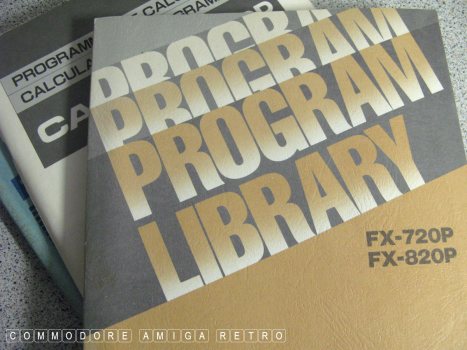
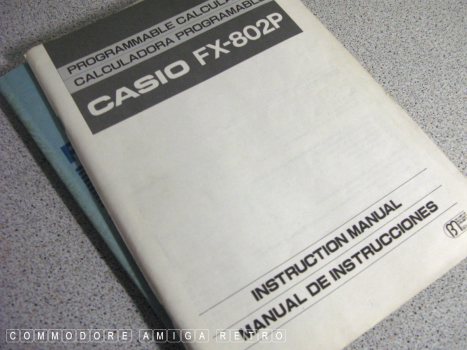
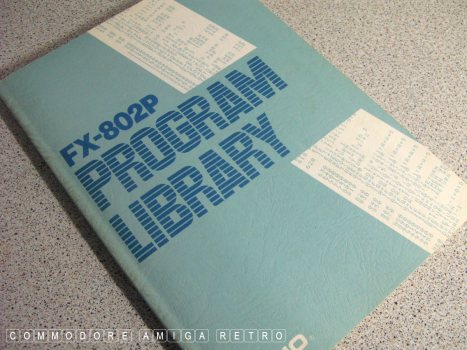
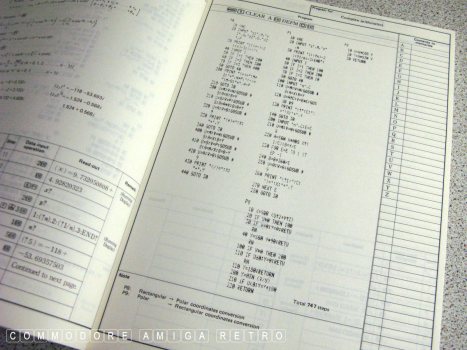
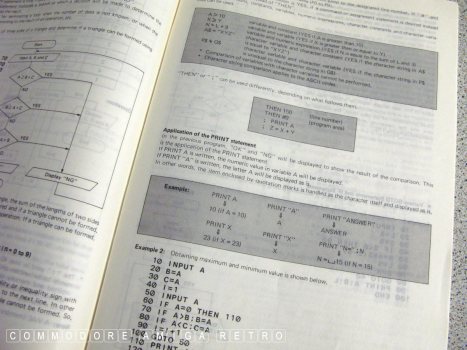
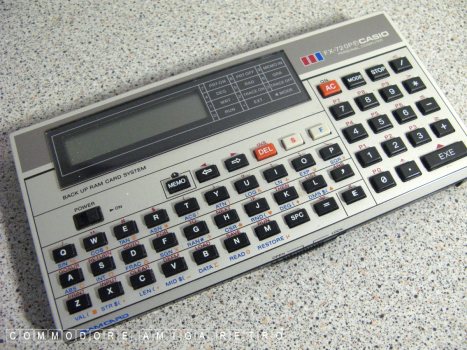
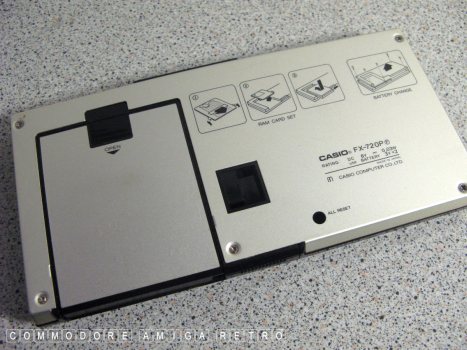
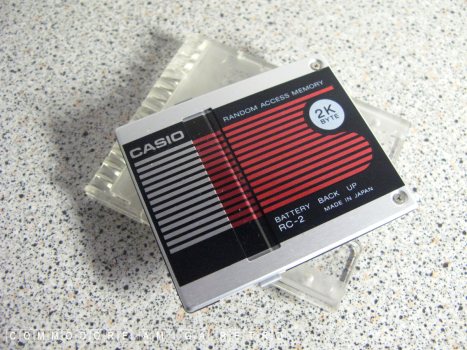
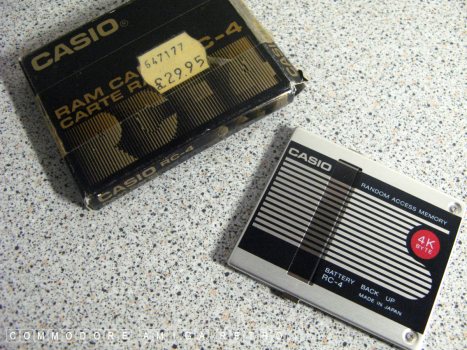
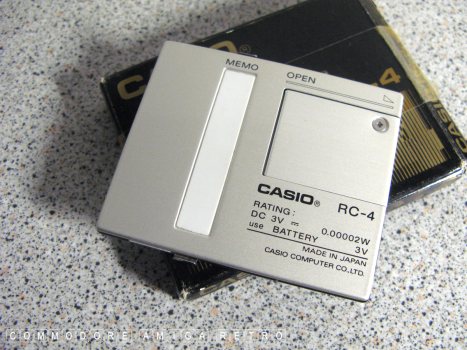
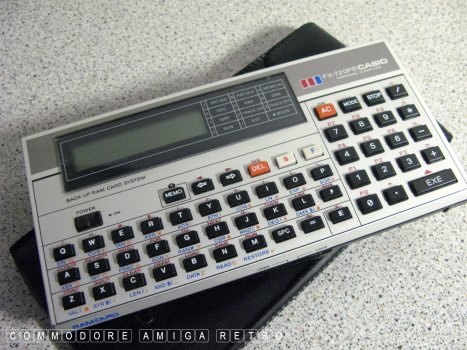
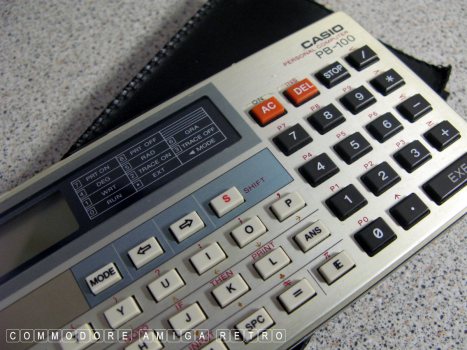
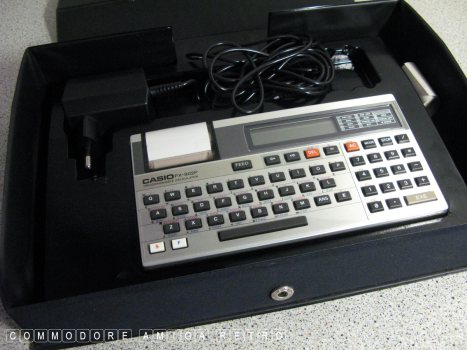
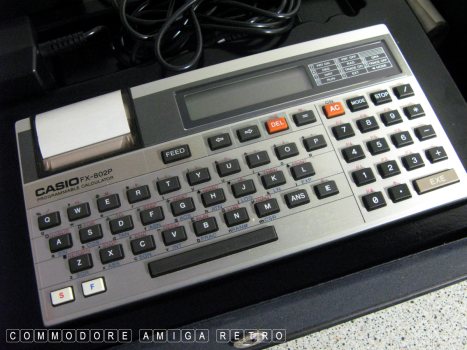
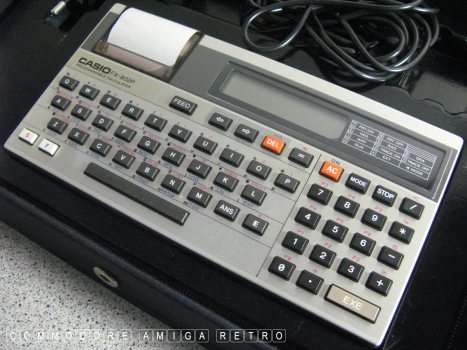
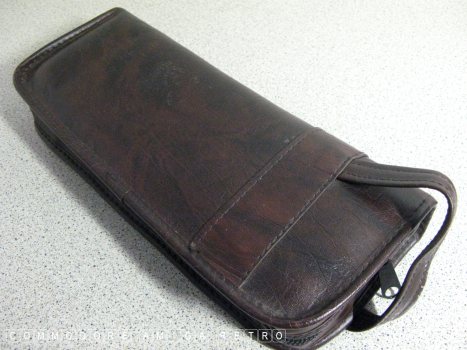
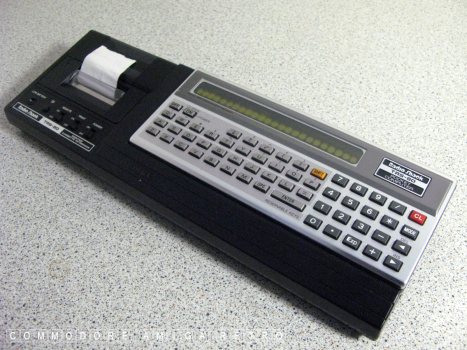
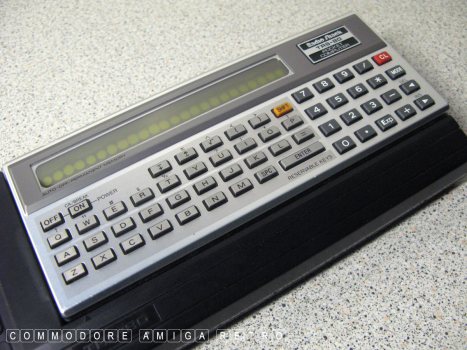
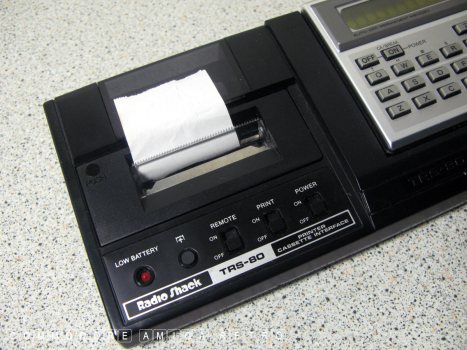
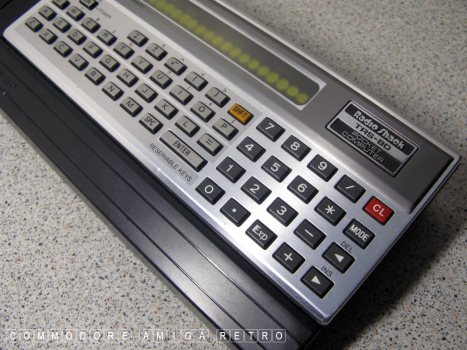
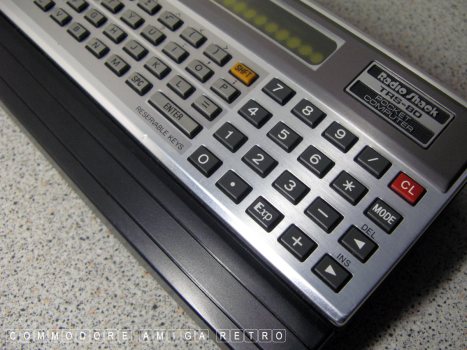
|


![]()


![]()